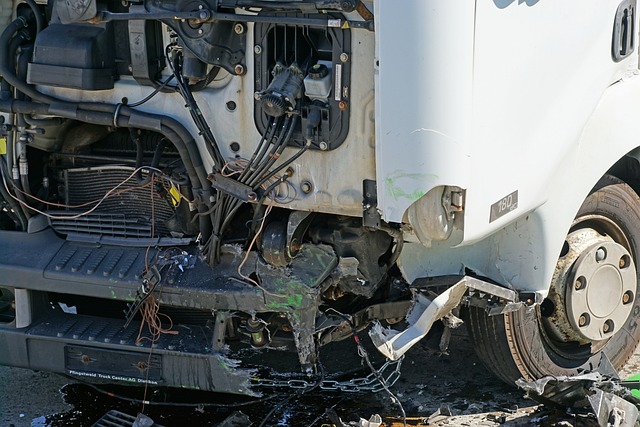General Liability insurance is crucial for businesses, protecting against claims related to bodily injury or property damage. Coverage includes accidents, injuries, and damages on premises or during business activities, with key components like personal and advertising injury liability, products-completed operations hazard, and independent contractors. Policies vary based on industry and risks, emphasizing the need for thorough review. Types include occurrence-based and claim-based coverage, with exclusions for intentional acts, war, nuclear events, and more. Efficient claims handling and robust defense strategies are vital. Legal expenses, including attorney fees and court costs, are covered up to complex lawsuits. Real-world examples underscore its importance for risk management and business continuity.
“General Liability insurance is a cornerstone of risk management for businesses, protecting against claims of bodily injury or property damage. This comprehensive guide delves into the intricacies of expert general liability coverage, offering insights for business owners seeking protection. From understanding key policy elements to navigating exclusions and handling claims, we explore who needs this coverage, its types, and best practices for selection. Discover real-world applications through case studies, ensuring your business is equipped to face potential liabilities with confidence.”
Understanding General Liability Insurance: A Comprehensive Overview

General Liability insurance, a cornerstone in risk management for businesses, offers protection against claims of bodily injury or property damage arising from operations. This vital coverage extends to accidents, injuries, and damages that may occur on your premises or during activities related to your business. It’s not just about legal fees; it also covers medical expenses, settlement costs, and court costs incurred due to these claims.
Understanding General Liability Insurance involves grasping its key components: personal and advertising injury liability, products-completed operations hazard, and independent contractors. Each aspect caters to distinct scenarios, ensuring comprehensive protection for your business. This insurance isn’t a one-size-fits-all solution; policies vary based on industry, size of business, and specific risks involved. Therefore, businesses should carefully review their policy to ensure adequate coverage that aligns with their operations and legal obligations.
Who Needs General Liability Coverage? Identifying Risk Areas

Everyone from small business owners to large corporations can benefit from General Liability Insurance, but it’s crucial for businesses that carry a significant level of risk or interact with the public on a regular basis. This type of insurance protects against claims of bodily injury or property damage that may arise from accidents or incidents related to your operations.
Identifying potential risk areas within your business is essential when considering General Liability Coverage. Common sources of liability include premises liability (accidents occurring on your property), products liability (damage caused by goods you’ve sold), and professional negligence (mistakes made during services provided). Regularly reviewing your operations, training staff on safety protocols, and staying informed about industry regulations can help mitigate these risks and ensure a robust risk management strategy.
Types of General Liability Policies and Their Key Features

General Liability insurance policies are designed to protect businesses from a wide range of claims, offering coverage for various liability scenarios. These policies typically fall into two main types: Occurrence and Claim-Based.
Occurrence-based policies provide coverage for accidents or incidents that happen during the policy period, regardless of when the claim is made. This type of policy is ideal for businesses with potential long-term liabilities, as it ensures continuous protection. On the other hand, claim-based policies cover specific claims made against the business, offering a more tailored approach. They are suitable for businesses facing immediate or pending lawsuits, providing a clear-cut framework for coverage. Both types have distinct features catering to different business needs, allowing entrepreneurs to choose the most fitting protection for their ventures.
How to Choose the Right General Liability Insurer

When selecting a General Liability insurer, it’s crucial to consider several factors. First, assess the insurer’s financial strength and stability to ensure they can honor their obligations in the event of a claim. Look for companies with solid financial ratings from reputable agencies. Next, evaluate their policy coverage options, exclusions, and limitations to make sure they align with your business needs. Understand what’s included and excluded in their general liability policies.
Additionally, consider the insurer’s claims-handling reputation. A reliable insurer should have an efficient and effective process for managing and resolving claims. Check reviews from current and past policyholders to gauge their experience and satisfaction with the insurer’s service. Prioritize insurers who offer transparent communication and prompt responses throughout the claims process.
Common Exclusions in General Liability Insurance Policies

General Liability insurance policies, while designed to protect businesses from financial loss due to claims of bodily injury or property damage, often come with certain exclusions. These are stipulations that specify what isn’t covered under the policy. Common exclusions include liability arising from intentional acts, such as assault or battery, and damages related to war, terrorism, or nuclear incidents. Additionally, policies usually exclude coverage for damage to a business’s own property or loss of use of property due to damage, as well as claims for punitive or consequential damages.
Other regular exclusions pertain to specific types of activities like hazardous waste handling, air pollution, and product recall. It’s crucial for businesses to thoroughly review these exclusions to ensure their specific needs are met. Understanding what’s not covered is an essential step in selecting the right General Liability insurance policy to fit a business’s unique risks.
Claims Handling and Defense in General Liability Cases

In general liability cases, efficient claims handling and robust defense strategies are paramount for businesses and individuals insured under this coverage. When a claim is made against the policyholder, the insurance provider plays a crucial role in managing the process. They assign adjusters who investigate the incident, gather evidence, and communicate with both the insured and the claimant. This initial step is vital to ensure accurate documentation and prompt resolution.
The defense aspect involves legal representation to protect the interests of the policyholder. Insurance companies often provide lawyers specialized in general liability cases to argue against the validity or extent of the claim. Through negotiations or litigation, these defenses aim to minimize financial exposure for the insured, ensuring they are not burdened with excessive settlements or court costs. Effective claims handling and defense can significantly impact the overall cost and outcome of a general liability case.
The Role of Legal Expenses in General Liability Insurance

General Liability insurance isn’t just about financial protection against accidents or incidents on your premises; it also includes coverage for legal expenses that may arise from related lawsuits. This aspect of the policy is vital as it provides resources to defend against claims, ensuring business continuity. Legal fees can accumulate quickly, especially in complex cases, and having this support within your insurance package offers peace of mind.
When an incident occurs, legal expenses can include things like attorney fees, court costs, and expert witness charges. Expert General Liability Insurance steps in to cover these costs, allowing businesses to focus on resolving the issue rather than worrying about financial strain. This proactive approach not only shields against potential financial ruin but also fosters a more positive business environment where operations can flourish without legal hurdles.
Case Studies: Real-World Applications of Expert General Liability Insurance

General Liability insurance plays a pivotal role in protecting businesses from unexpected legal repercussions and financial losses. Its real-world applications are vast, with case studies illustrating its value across diverse sectors. For instance, consider a small restaurant facing a slip-and-fall incident. Without proper General Liability coverage, this could result in substantial compensation payouts and legal fees. However, with an expert policy in place, the insured establishment is shielded from these costs, enabling them to focus on menu innovation and customer satisfaction rather than navigating complex litigation.
Another scenario involves a tech startup that inadvertently infringes on a competitor’s intellectual property rights. Legal battles can be lengthy and costly. Expert General Liability Insurance steps in by providing legal defense fees and potential damages, protecting the startup’s financial health while allowing them to mount a robust defense. These case studies demonstrate how tailored liability coverage acts as a safety net, enabling businesses to navigate risks with confidence and continue thriving in their respective industries.
